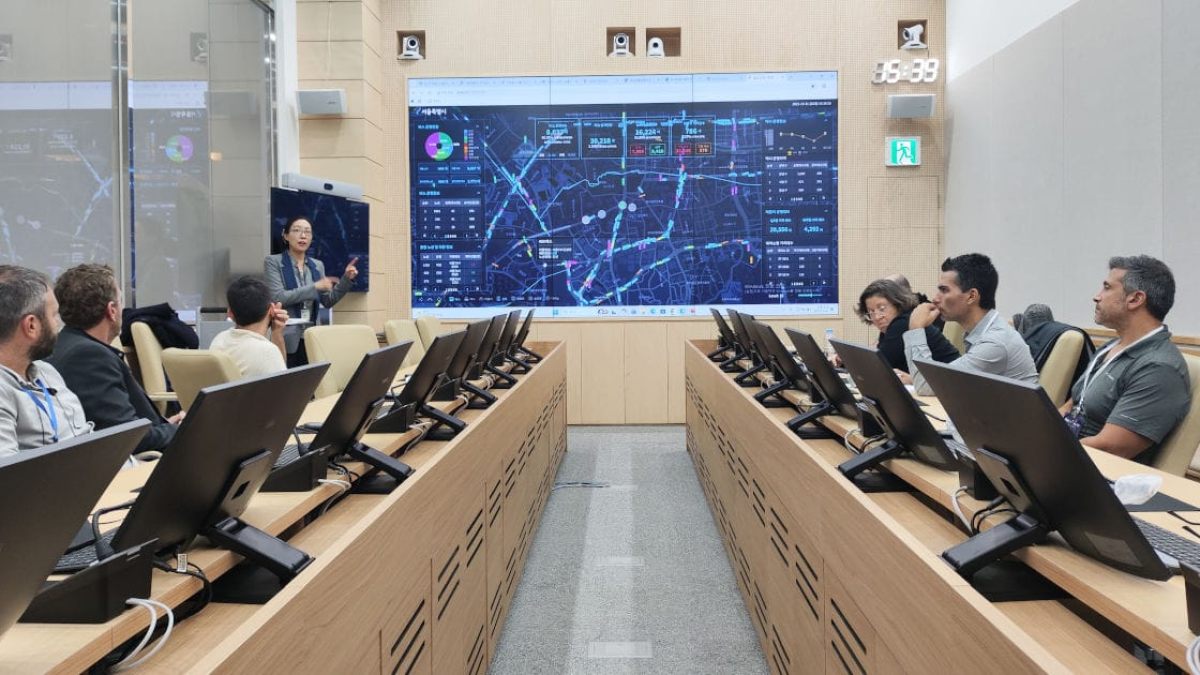This success story comes from providing the following services: Korea Trade Missions and Market Visit Assistance
As part of its international cooperation and policy-exchange initiatives, KOISRA successfully organized and executed a focused study visit to South Korea for the JDC (The Joint) Elka ForuMetro program. The delegation, composed of 40 senior officials and executives from NTA – Metropolitan Mass Transit System Ltd, the Ministry of Transportation, the Ministry of Finance, and municipal metro authorities, explored Korea’s advanced metropolitan rail and subway infrastructure systems and best practices.
OBJECTIVE – LEARNING FROM KOREA’S ADVANCED METRO SYSTEMS
The key objective was to provide participants with first-hand understanding of Korea’s public transportation models, governance frameworks, and operational practices in large-scale metro development. The program was designed to equip policymakers, engineers, and administrators with practical insights into Korea’s integrated rail planning, project management structures, and technological innovations supporting efficient and sustainable metro networks.
CHALLENGE – MULTI-DISCIPLINARY INTERESTS, LARGE GROUP & PERSONALIZED LOGISTICS
The delegation’s composition and scope presented several unique challenges:
- Diverse professional backgrounds: The participants represented a wide range of fields — including engineering, architecture, finance, management, and public administration — requiring a program that connected policy-level discussions with technical, design, and operational perspectives.
- Integrated content design: Each visit and seminar had to combine relevant themes that addressed the interests of these diverse groups while maintaining a coherent learning narrative.
- Large group coordination: Managing a 40-member delegation demanded precise logistical planning and coordination with multiple institutions. Personalized arrangements such as dietary preferences, accessibility needs, and transportation schedules had to be accommodated.
- Tight preparation timeline: The entire program was developed and executed within a limited window, requiring rapid coordination and flexibility from both Korean and Israeli sides.
APPROACH – EXPERT MATCHMAKING, CUSTOMIZED LEARNING & FULL LOGISTICAL DELIVERY
KOISRA implemented a structured, four-phase approach to ensure relevance, quality, and seamless execution:
- Needs Assessment – Conducted in-depth consultations to identify the delegation’s learning goals, technical areas of interest, and institutional priorities.
- Stakeholder Mapping – Identified and engaged leading Korean metro operators, government agencies, and academic institutions capable of providing in-depth exposure to rail planning, construction, and management practices.
- Program Development – Designed a customized multi-day itinerary including educational seminars, technical briefings, and on-site visits covering metro infrastructure, control systems, and operational models.
- Operational Execution – Managed every operational detail, coordinating meetings, arranging seminars, organizing visits to major transportation hubs, railway depots, and control centers, and overseeing logistics, transportation, interpretation, and on-site assistance.
OUTCOME – KNOWLEDGE EXCHANGE, INSIGHTFUL EXPERIENCE & FUTURE COLLABORATION
The program delivered measurable results and long-term value:
Comprehensive Institutional Engagement: The delegation engaged with leading Korean metro and infrastructure organizations, including the Ministry of Land, Infrastructure and Transport (MOLIT), Korea Railroad Corporation (KORAIL), Korea National Railway (KR), Hyundai Rotem, Yooshin Engineering, Transport Operation & Information Service (TOPIS), and the Songdo Smart City Control Center, among others. Through these visits and meetings, participants gained a practical understanding of large-scale rail system operation, management, innovation, and smart mobility integration.
Tailored and Impactful Content: Each component of the visit was adapted to match the professional diversity of participants, combining technical, financial, and policy perspectives into one cohesive learning experience.
Seamless Execution and Participant Satisfaction: KOISRA’s team ensured smooth delivery across all aspects of the program — from content and coordination to interpretation and hospitality — resulting in highly positive feedback.
New Partnerships and Ongoing Dialogues: The visit not only provided deep learning on both policy and execution levels, but also generated significant interest from Korean organizations seeking to participate in Korea’s ongoing Metro projects, paving the way for future collaboration and joint ventures.
Building on this momentum, KOISRA is actively supporting leading Korean metro-infrastructure companies in their direct investigation, negotiation, and operational engagement with the Israeli government, local companies, and the NTA. This includes providing on-site support in Israel along with comprehensive business development, regulatory, and legal assistance, enabling Korean partners to navigate opportunities efficiently and accelerate their involvement in Israel’s Metro development.




